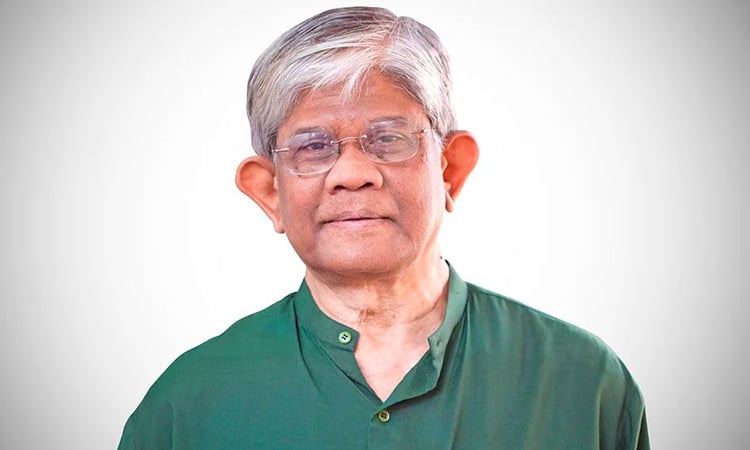News Flash

DHAKA, April 17, 2025 (BSS) – Finance Adviser Dr Salehuddin Ahmed said that the government would continue to put emphasis on minimizing the existing trade gap between the USA and Bangladesh in the wake of the US reciprocal tariff issue.
“We’ll try to minimize the trade gap further with the USA so that we can continue our exports through export diversification side by side imports … However, the gap won’t be zero and it’s not possible,” he said.
The finance adviser was responding to the queries from reporters at the Cabinet Division at Bangladesh Secretariat today after chairing two separate meetings on the Advisers Council Committee on Economic Affairs and Government Purchase.
Dr Salehuddin is scheduled to leave the Capital for Washington DC on April 19 to attend the Spring Meetings of the World Bank Group and the IMF alongside holding bilateral meetings with the authorities concerned where the US tariff issue is likely to dominate.
During his USA tour, the adviser said there would be discussions on some issue like budget support as well as on some issues related to projects associated with the World Bank, IMF, ADB and OPEC Fund.
“We’ll discuss those issues while some agreements may be signed like two deals with the World Bank as well as with the OPEC Fund and others regarding financing,” he added.
Besides, he said they would also discuss with the IOM, US Treasury side by side with the concerned Russian side on Rooppur Nuclear Power Plant regarding payment issue.
The finance adviser said they would also discuss with the US business council and trade body leaders association alongside representatives from the top rated 70 to 80 companies like Chevron, Metlife, Aramco, and Atlantic Council and thus would discuss over attracting more FDI and economy.
“We want to boost our relationship with the USA as much as possible both at government level and multilateral level as well as with private level engagement. Even, we’ll have discussions with the energy sector officials of the US,” he said.
Following the imposition of 37 percent reciprocal tariff by the USA and subsequently its suspension for 90 days, Dr Salehuddin said, “We’ve to give more emphasis on importing goods from the USA as we import less from the USA than our exports, which leads to the trade gap.”
Answering to a question, he said definitely they would hold discussions with the concerned US authorities over the tariff issue although it would not be solved through a mere week-long discussion.
He said that the desire of the government is that the existing trade gap does not widen further rather minimize. “Especially, we can try for restoring the GSP facilities in the US market since it is important side by side opening it up further in the EU and other markets.”
The finance adviser said that they would diversify the country’s exports further in the coming months although the exports have already been diversified based on brand, quality and market.
“We’ll aim on how to open up those further. On the whole, we want to boost the trade relations with the USA since there is further scope as China has been restricted to a great extent,” he cited.
Dr Salehuddin said Bangladesh can import more energy and capital machineries from the USA. “If we import more from them, then the trade gap will be minimized.”
For restoring the GSP facilities, he said that discussions would be held as it can’t be resolved in a day while there are some other issues like labour law, trade union and quality.
Introduced in 1976, the GSP was a trade scheme that allowed least developed and developing countries to export goods to the US at a low duty or none at all in some cases.
However, such benefits were suspended for Bangladesh in June 2013 over serious shortcomings in labour rights and workplace safety standards after twin industrial disasters: the Tazreen Fashions fire and Rana Plaza building collapse.